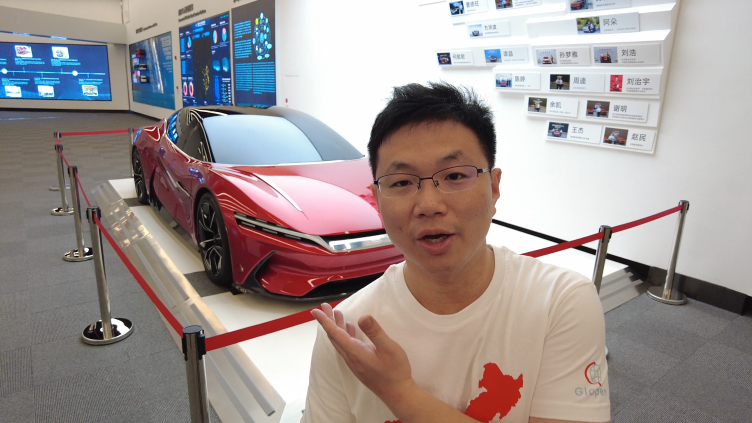
1. BYD to invest US$620 million for 3 factories in Brazil, to produce affordable vehicles and batteries for local markets
BYD, the world’s largest electric vehicle (EV) maker, has announced its plans to make a strategic investment of US$620 million in the establishment of an industrial complex in Bahia state, northeastern Brazil.
This ambitious project, which includes the construction of three distinct plants, is expected to commence operations in the latter half of 2024. Notably, this will mark BYD’s first manufacturing footprint outside of the Asian continent.
In March, BYD started construction of a plant in Thailand, its first in Southeast Asia. Upon completion in the forthcoming year, this Thai-based plant will boast an annual capacity of 150,000 EV units. Further advancing its international expansion, BYD, in May, entered a preliminary agreement with the Indonesian government, cementing its intentions to commence EV production in the nation.
Simultaneously, BYD is constructing an assembly plant in Uzbekistan, contributing to its diversified global production network.
Reflecting on the company’s impressive sales trajectory, BYD successfully delivered 1.26 million vehicles to its customers in the first half of 2023, a figure which represents almost double the volume of the same period in the previous year. This evidences BYD’s accelerating growth and expanding market influence in the global EV sector.
2. Iran joins Shanghai Cooperation Organisation becoming the ninth full member
Iran joined the Shanghai Cooperation Organisation (SCO) on 4th July, a move that will see the country further strengthen its trade ties with China, Russia, India and other Asian states.

The Shanghai Cooperation Organisation (SCO) is a Eurasian political, economic, international security and defence organization established by China and Russia in 2001. It is the world’s largest regional organization in terms of geographic scope and population, covering approximately 60% of the area of Eurasia, 40% of the world population. As of 2021, its combined GDP was around 20% of global GDP. In March 2023, Saudi Arabia also joined SCO as Dialogue partner and it was rumored that for both Saudi Arabia and Iran to join BRICS or SCO, normalizing ties with each other was a prerequisite. This sequence of events signals a transformative period in the geopolitical landscape of the Eurasian region.
3. On 6th July, China Association of Auto Manufacturers organized 16 Chinese EV makers to sign a pledge to avoid “abnormal pricing” but retracted later due to antitrust law
Thursday’s CAAM-organised pledge by the companies, including Chinese electric vehicle (EV) makers Nio, Li Auto and Xpeng, had been interpreted by some as signalling a truce in a price war that has threatened industry-wide profitability.
But Elon Musk’s EV giant Tesla on Friday rolled out a global programme letting buyers get extra incentives through referrals from existing customers, a strategy long used by traditional carmakers to boost sales.
In a statement on its website on Saturday, CAAM said it recognised the pricing pledge had violated China’s antitrust law and said it would delete it from a list of commitments the carmakers had signed, witnessed by an official from the Ministry of Industry and Information Technology.

CAAM said it would urge the 16 companies and other association members to strictly comply with the antitrust law and compete fairly with independent pricing.
4. Chinese authorities announced on 7th July a 7.12 billion yuan ($984 million) fine for Ant Group, marking a key step to concluding a crackdown on the country’s internet sector.
On 7th July, Chinese regulators announced the press release titled “Financial Management Departments Actively and Successfully Promote the Rectification of Financial Businesses of Platform Companies to Enhance the Normalized Financial Supervision Level of Platform Companies” on their official websites, along with a 7.12 billion yuan ($984 million) fine for Ant Group. At the same time Ping An Bank, Postal Savings Bank and Tencent Holdings’ online payment platform Tenpay have also been fined.
Ant Group is an affiliate company of the Chinese conglomerate Alibaba Group. The group owns the world’s largest mobile (digital) payment platform Alipay. In Oct 2020, right before the planned largest IPO in history, Ant Group was investigated by the regulators after Jack Ma publicly criticized the regulator being too conservative and not promoting innovation. The penalty notice shows that Alipay has committed seven violations including breach of payment account management regulations; violation of clearing management regulations; conducting transactions with unidentified customers. Ant Group was also requested to cease the “Xianghu Bao” product which was in fact a mutual insurer operating without the respective insurance license required.
Ant’s penalty paves the way for the fintech firm to secure a financial holding company license, seek growth, and eventually, revive its plans for a stock market debut, hence Alibaba Group shares rose 9% after the announcement.
5. China will limit exports of products made from the minor metals of gallium and germanium to protect national security starting from 1st August
On July 10th, the Beijing government announced restrictive measures on the export of products derived from minor metals, including gallium and germanium, along with several related compound metals such as gallium nitride (GaN) and gallium arsenide (GaAs), citing national security considerations. The new regulations, set to be implemented from August 1, appear to be a response to recent actions by the United States, the Netherlands, and Japan, which aimed to limit the export of advanced semiconductor tools to China in an attempt to impede its ambitions in the chip industry.
GaN is a vital material in the production of power semiconductors, commonly used in fast-charging consumer electronics and electric vehicles, while GaAs is integral to power amplifier components employed in a wide spectrum of communication devices, including telecommunications gear and defense equipment.
Additionally, germanium holds significant importance in the electronics industry, being extensively utilized for fiber optics, infrared optics, and satellite solar cells. Its role is also pivotal in military sighting systems designed for low-light environments.
This announcement emerges as a point of contention ahead of the scheduled visit to Beijing by U.S. Treasury Secretary Janet Yellen.

0 Comments